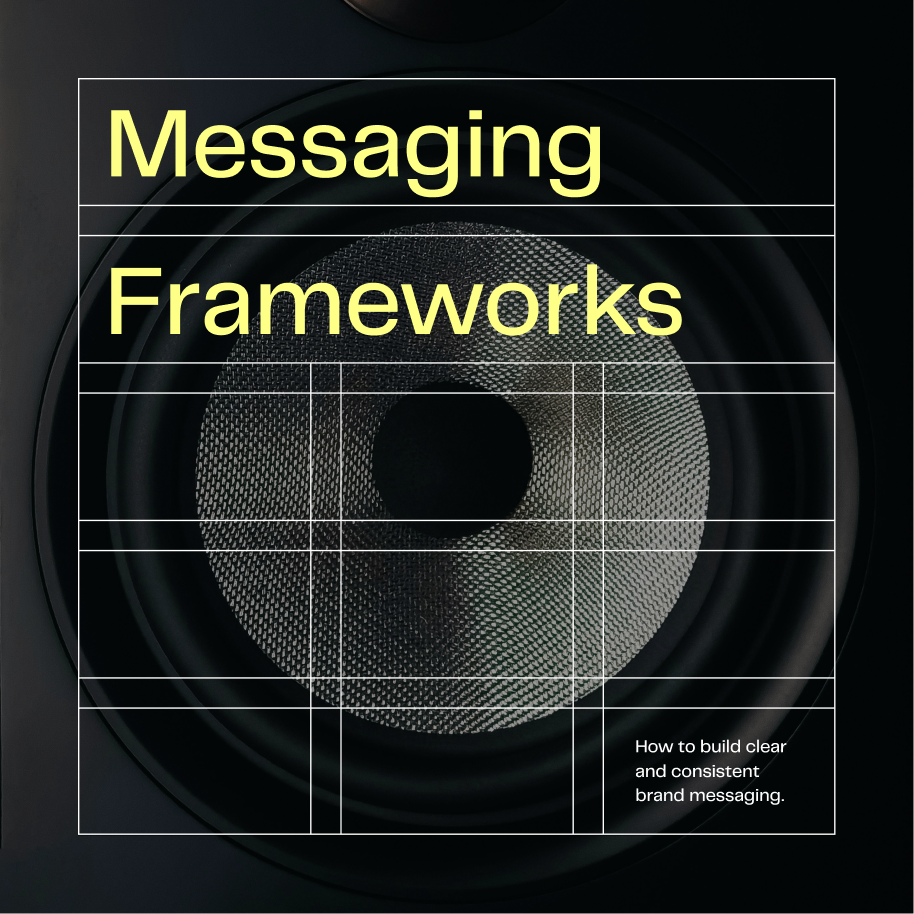Let’s start with the silver lining: Most recessions in the United States last just 17 months.
While that’s not exactly music to anyone’s ears, it’s not a complete cacophony either.
Unfortunately, many B2B businesses overreact at the slightest rattle. We’ve seen this play out with mass layoffs, consolidation of resources, elimination of products and services — and, all too often, a pullback on branding in a recession.
The irony is that investing in your brand can actually act as a shield during economic downturns. Here’s how to ensure your B2B brand is ready to weather any storm and emerge stronger — while your competitors are still catching up.
The power of branding in a recession: why B2B companies should lean in.
This isn’t just theory. It’s a documented pattern across multiple economic cycles. An analysis covering the recessions that occurred between the 1980s and early 2000s found that advertising during an economic downturn paid off in the long run. Brands that maintained or raised marketing spending during tough times saw higher increases in market share once the recession was over compared to those that slashed marketing expenses.
That is to say: Marketing can actually drive the resiliency of a brand.
Treat your B2B brand as a strategic investment.
As a marketer, you know that your brand is your lifeblood. Your brand represents who your B2B organization is, what it stands for and what makes your offerings unique. It’s the complete package of perceptions, experiences and relationships that business customers associate with your products and services — the elements that build lasting customer loyalty.
To build a brand that accomplishes all that, you need to define your core values and unique selling proposition.
Your core values represent the fundamental beliefs and principles that guide your business. They shape your brand’s personality and influence the way you interact with your customers.
Meanwhile, your unique selling proposition highlights why people should choose your business over your competitors. This differentiation creates a memorable brand that acts like a magnet, which sets your business up for long-term success, even when the going gets tough.
In other words, branding is an investment that yields what you put into it, now and well into the future.
Evolve your B2B branding in a recession.
Economic downturns happen, but when market uncertainty hits, it’s natural to focus on immediate challenges.
But the reality is that B2B customers — that is, other businesses — are feeling the same crunch. For that reason, they gravitate toward brands that demonstrate genuine value and build lasting trust. Smart companies recognize this and lean into their brands.
A brand that maintains consistent visibility during shaky times provides a crucial sense of stability and confidence to business customers. When everyone else is wavering, your steady presence can be attractively reassuring. To paraphrase Douglas Adams: Don’t panic.
That said, this is also a good time to evaluate your brand and make necessary shifts to better suit the current climate. This doesn’t mean a complete overhaul but rather thoughtful adjustments to your messaging, positioning and maybe even your value prop. You should consider whether you’re thoughtfully addressing both the business needs and the psychological needs of your clients who may be in weakened financial positions — or fear that they might get there.
While continuing your brand-building efforts, be mindful of the messages you’re putting out. Consumers are particularly sensitive during tenuous times.
The key is to think both tactically and strategically: Address current business customer needs while considering how economic pressures reshape long-term purchasing behaviors and brand preferences. Waiting for market conditions to improve before going out into the world with your brand — albeit modulated for the environment — means missing valuable opportunities to connect with your audience, especially when your competitors may be scaling back.
Build trust in & loyalty to your B2B organization.
So how can you build trust and communicate in a way that adds value for your business customers during unpredictable times? Here are a few practical strategies:
- Refine your brand messaging to address current market concerns while staying true to your core values. Evolution, not revolution.
- Invest in relationship-driven brand touchpoints that create meaningful connections with decision-makers at your client companies.
- Listen actively to customer feedback about how your brand is perceived, and adjust accordingly. Responsive brands build trust.
- Be transparent in your brand communications about what clients can expect, demonstrating reliability even when circumstances change.
- Partner with trusted industry voices whose credibility can enhance your brand’s standing with target audiences.
- Prioritize high-impact, cost-effective channels like social media, thought leadership content, search optimization and email newsletters to maintain brand visibility without excessive spending.
Monitor & measure your B2B branding in a recession.
If you really want to understand if your organization is making the right moves during a recession, you might consider a brand-tracking study. These studies are developed in partnership with a research expert, who aligns with you on your goals and KPIs, and then surveys your audience to assess the health of your brand over time.
If this is of interest, we covered branding ROI and brand-tracking studies more in depth here.
As an alternative or as a supplement, you can also engage in social listening or set up a Net Promoter Score survey of your customers.
These tools provide valuable insights into how your brand is performing during challenging economic conditions.
Want to maximize your impact? Partner with a lean agency.
When economic uncertainty strikes, partnering with the right B2B branding agency becomes critical. Here’s why lean, nimble branding firms offer distinct advantages for branding in a recession.
- Competitive advantage while others retreat: As your competitors slash marketing budgets and go quiet, a lean agency helps you maintain visibility and capture market share. Their focused approach ensures your B2B brand remains prominent when others disappear from the conversation.
- High-value solutions: Smaller agencies operate with lower overhead and more efficient processes than traditional large agencies with expensive office space. These savings translate directly to clients, allowing you to invest in high-impact branding without the premium price tag — critical when every dollar counts.
- Accelerated implementation: Agile teams can pivot quickly. This nimbleness means your B2B brand can adapt to changing market conditions and start seeing results faster than competitors who are still waiting for their agency partner to navigate approval processes.
- Focused expertise: Look for an agency that specializes in your specific industries or capabilities, providing deeper insights and more tailored strategies for your B2B brand challenges.
- Direct access to top talent: With right-size agencies, you work directly with senior strategists and creative directors — not junior account managers. Your projects aren’t handed off to less experienced team members after the pitch. This direct collaboration with seasoned professionals ensures your brand receives high-caliber strategic thinking and creative execution, which is particularly valuable when navigating uncertain economic conditions.
Building long-term B2B brand strength.
Recessions are still daunting for any business, especially smaller players in the market.
But the takeaway for every organization is to remain future focused. By staying front and center, and actively engaging with your customers, you will build trust, loyalty and brand recognition that extends well beyond economic downturns.
Remember, recessions are temporary, but the benefits of effective branding in a recession are enduring. The strategic partnerships you form today will determine how quickly you emerge from economic uncertainty — and how strongly you’re positioned when the market rebounds.
Ready to transform your B2B brand into a recession-proof asset? Let’s start the conversation about creating an ironclad brand strategy that delivers results.



